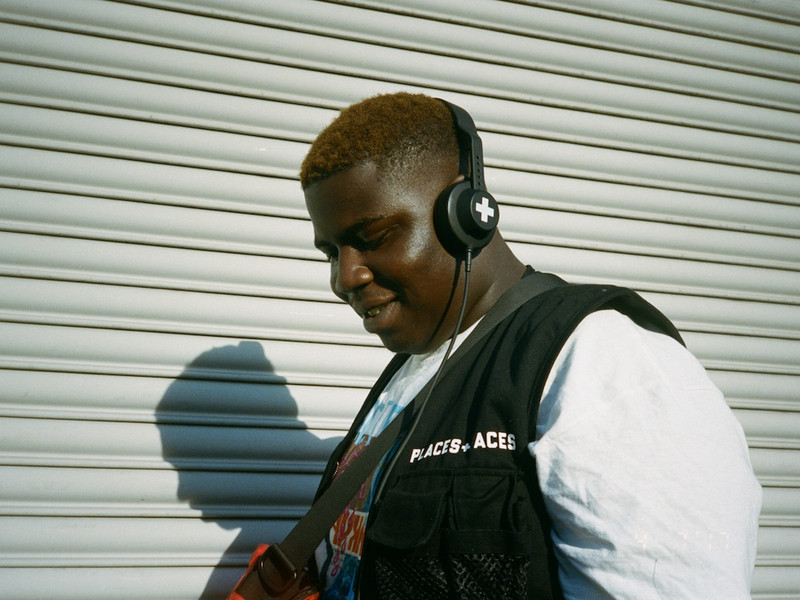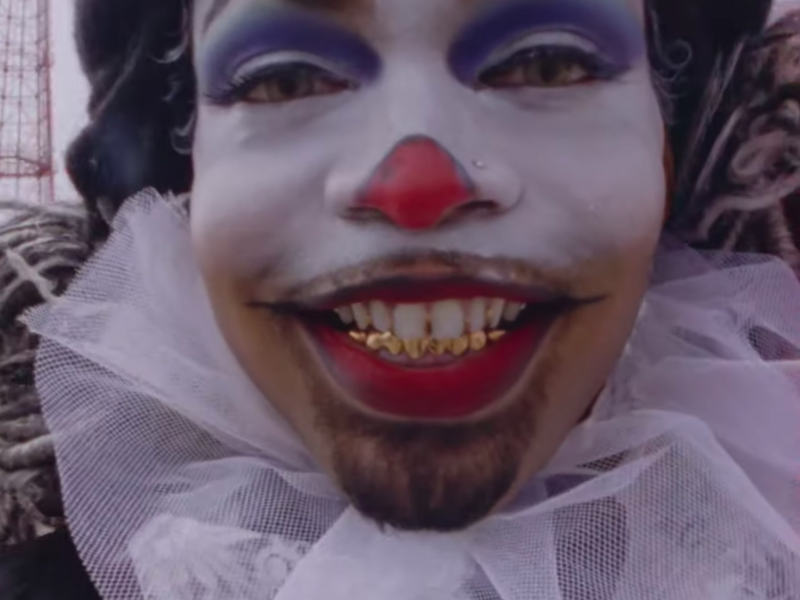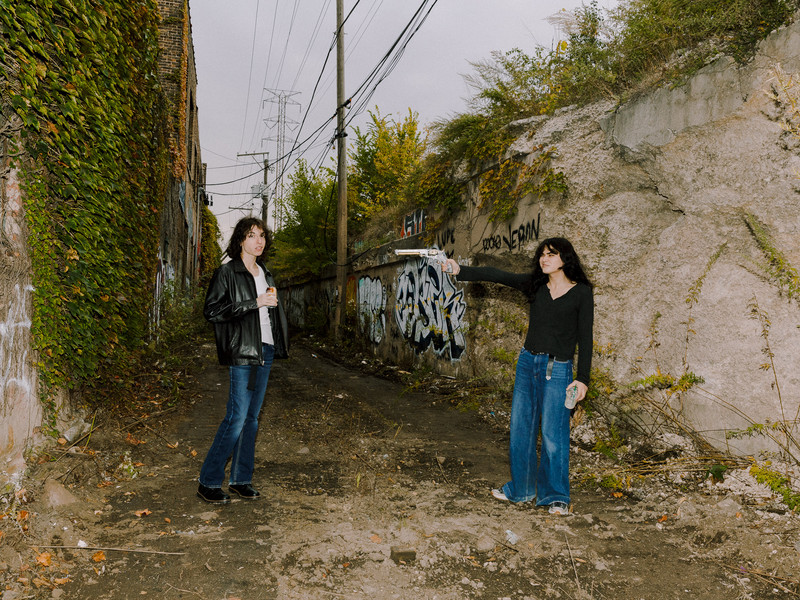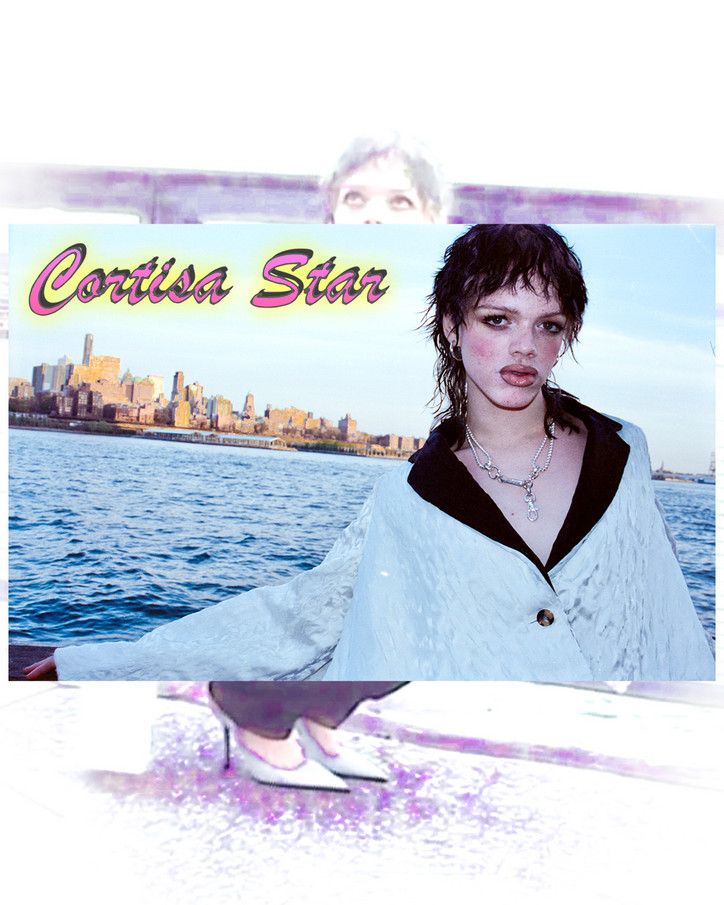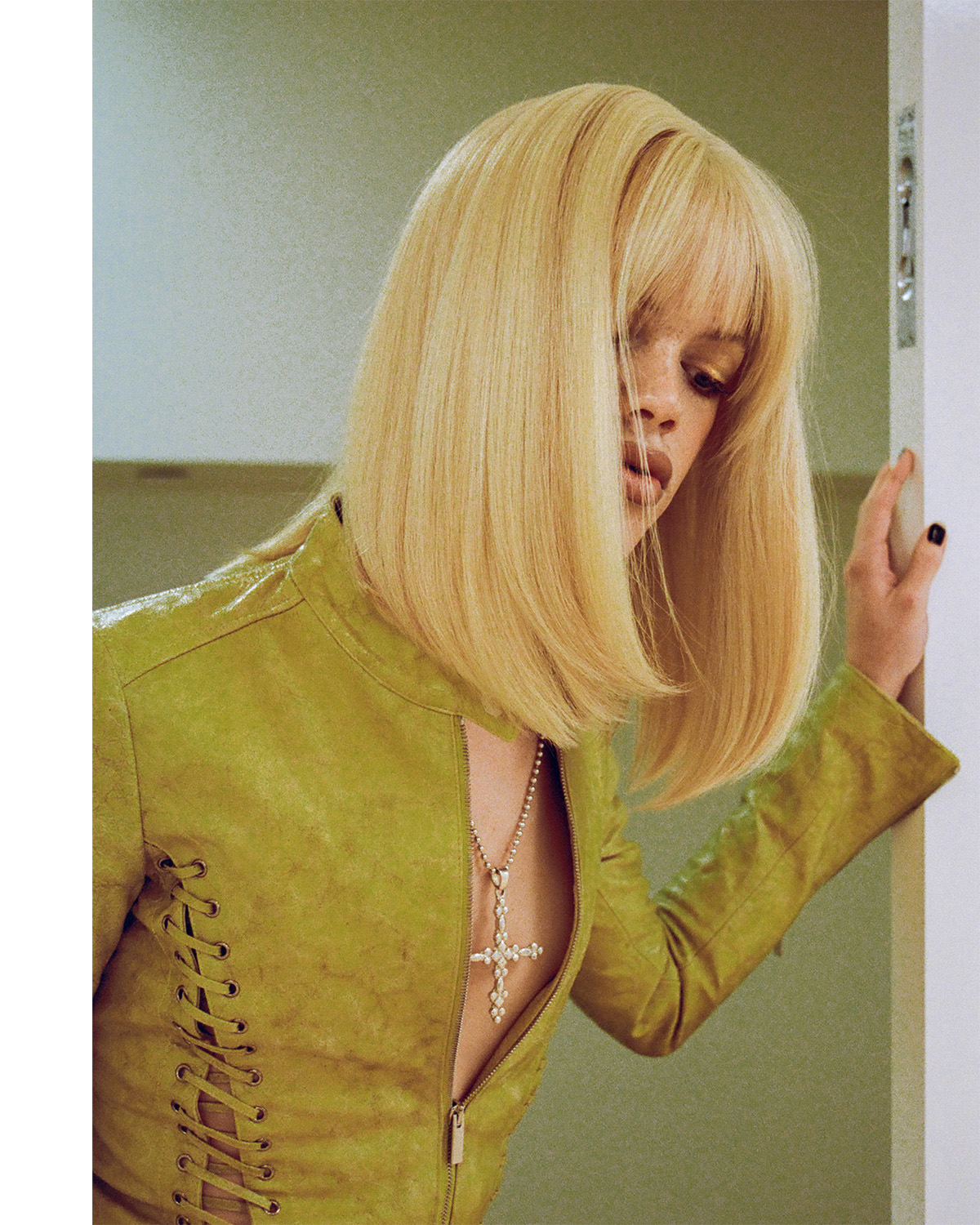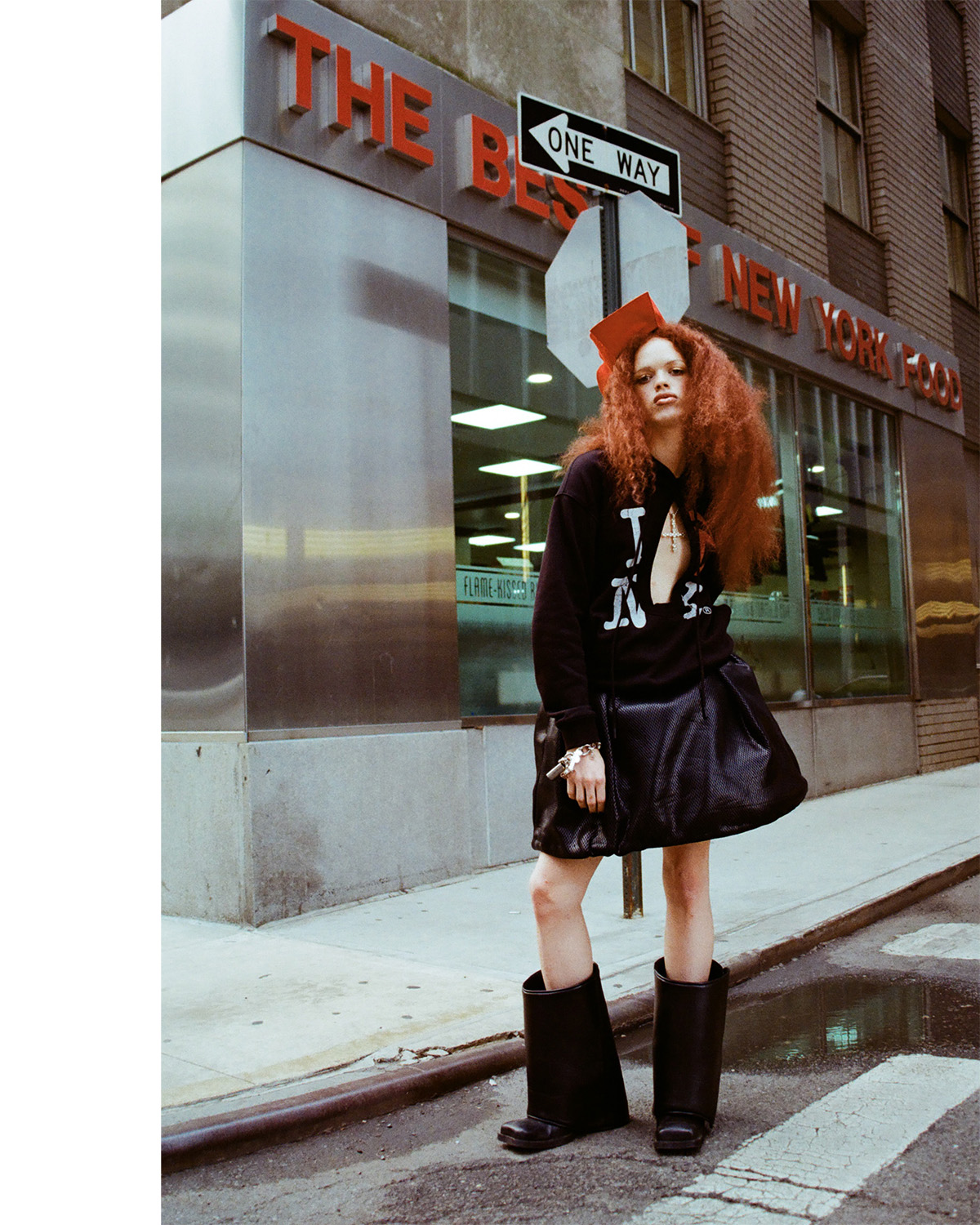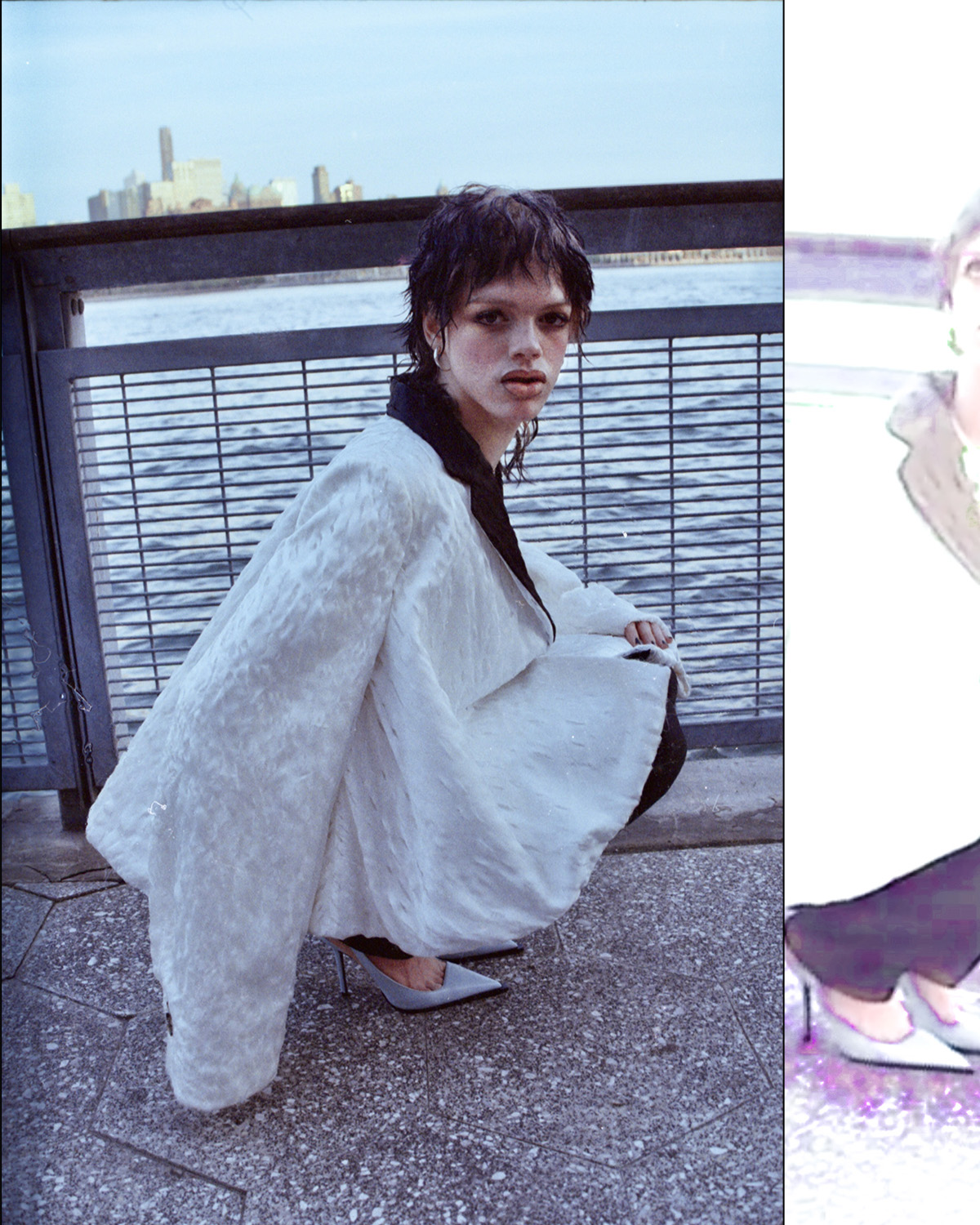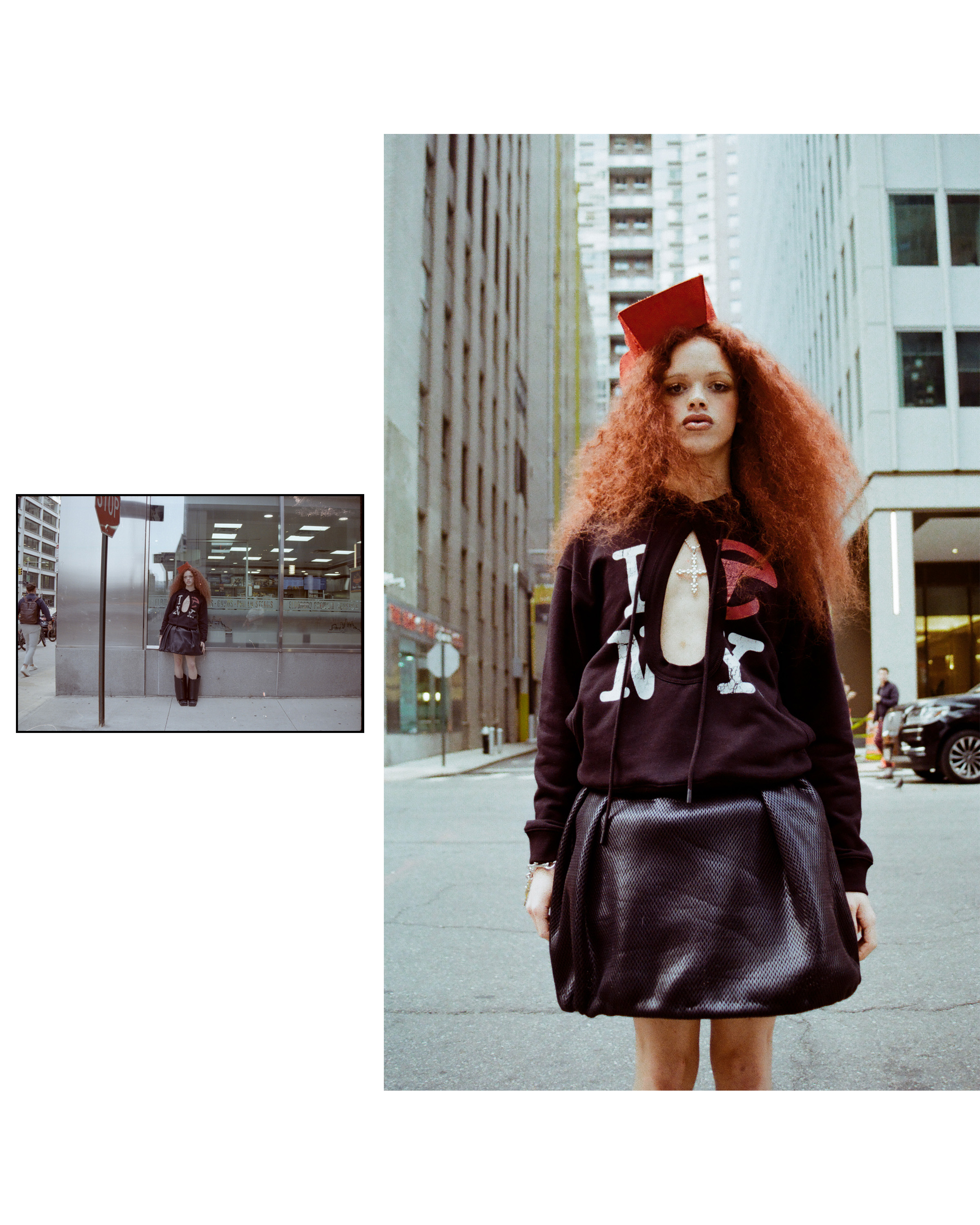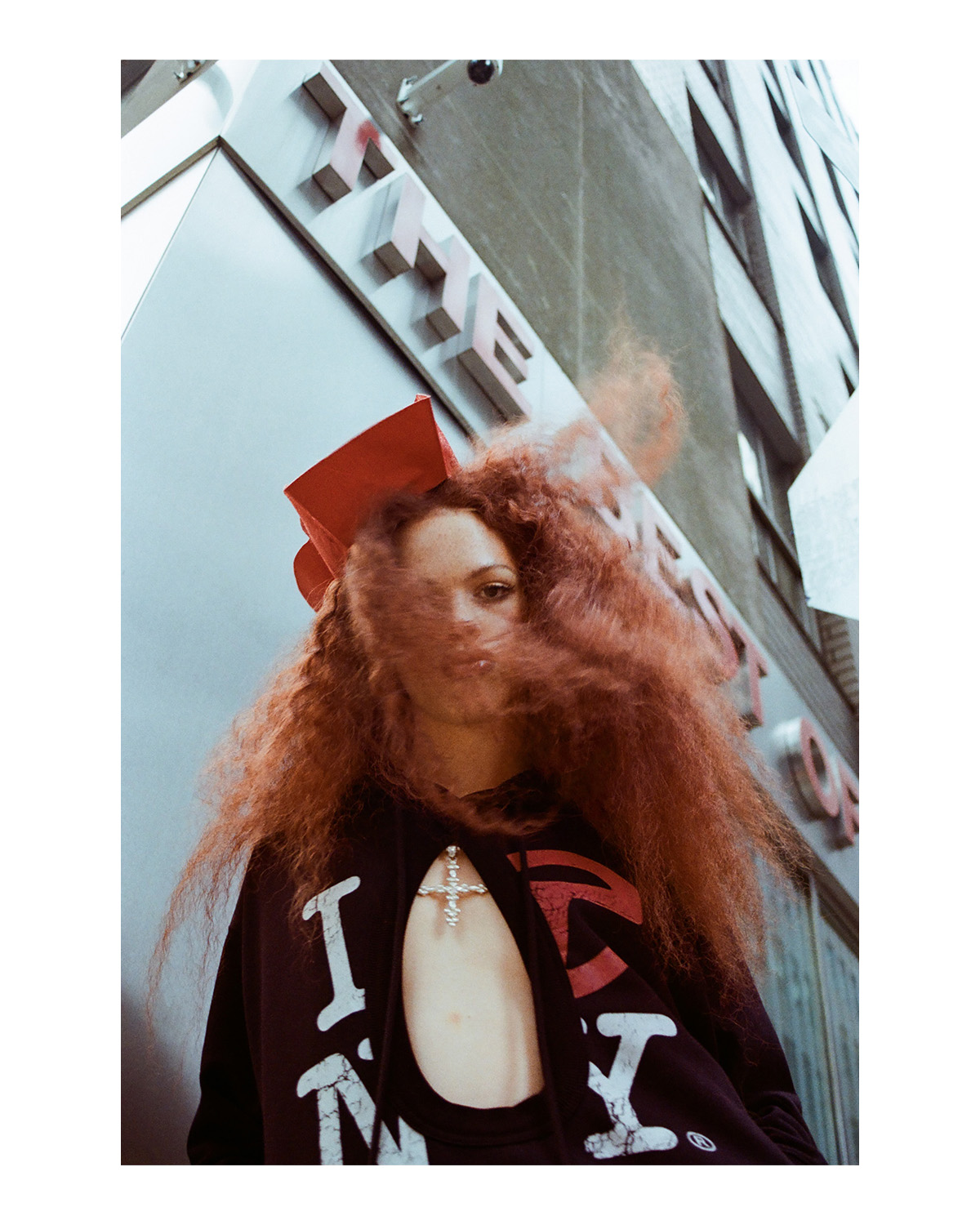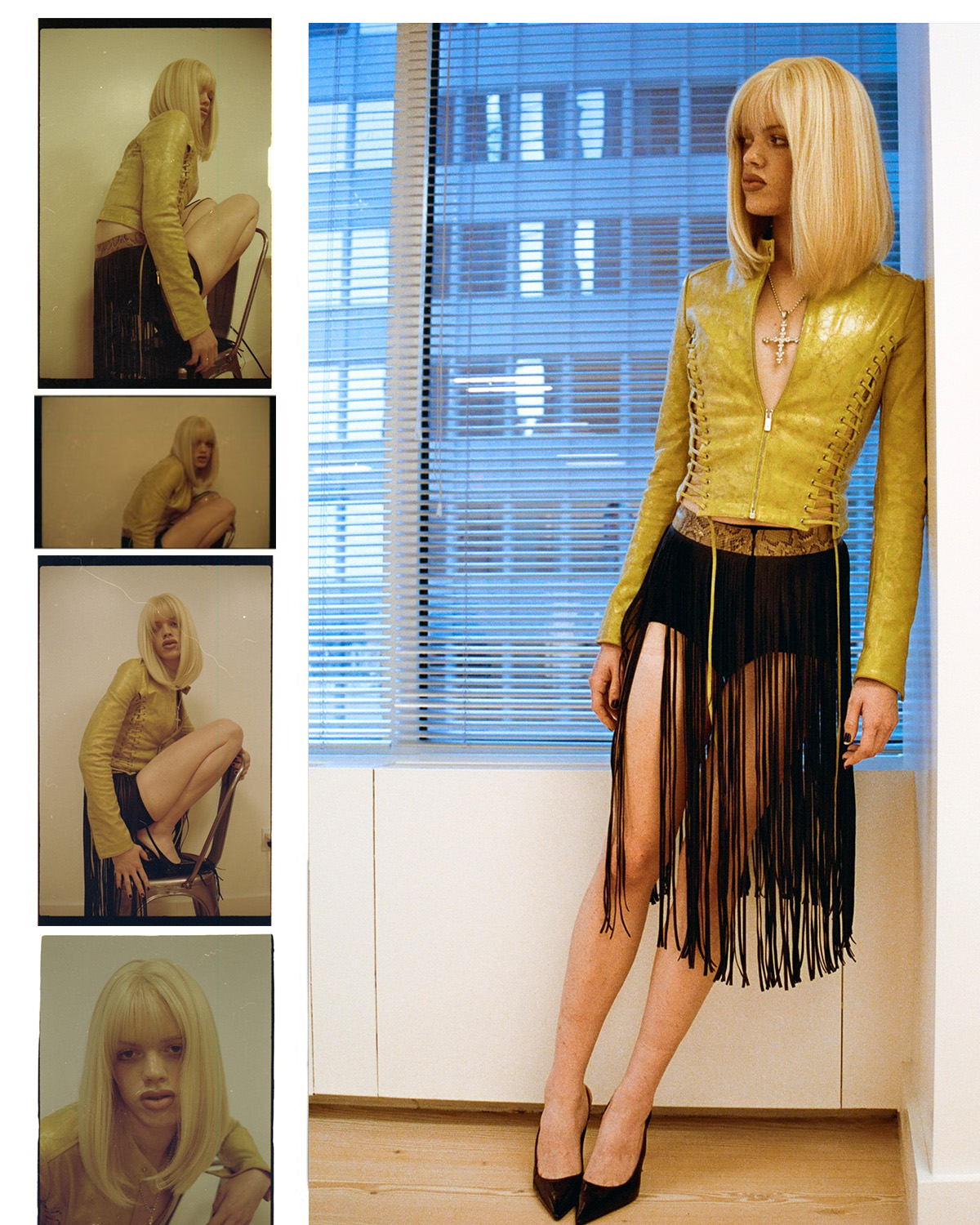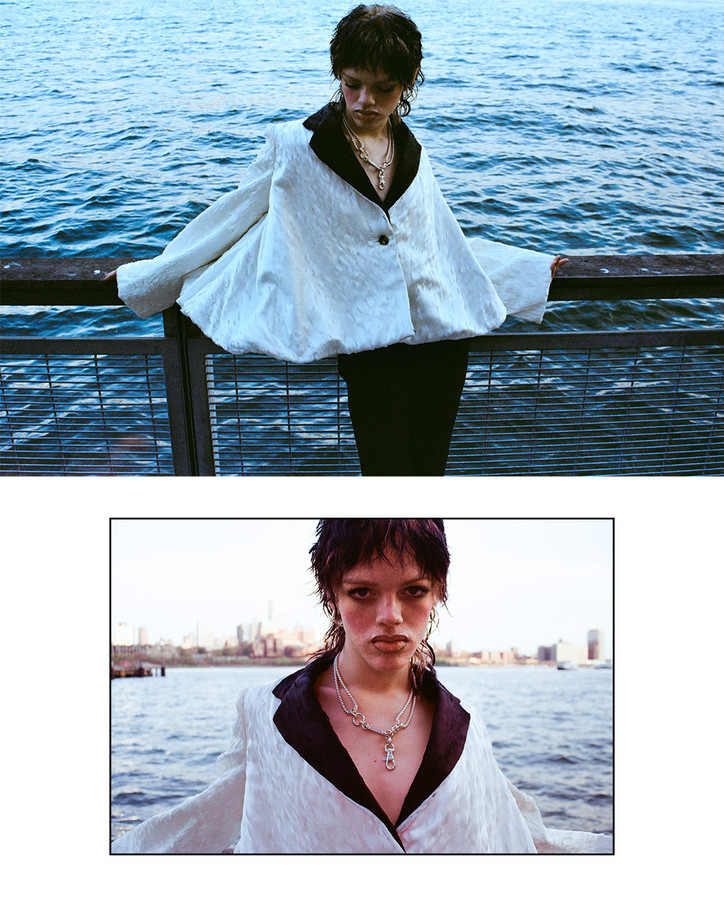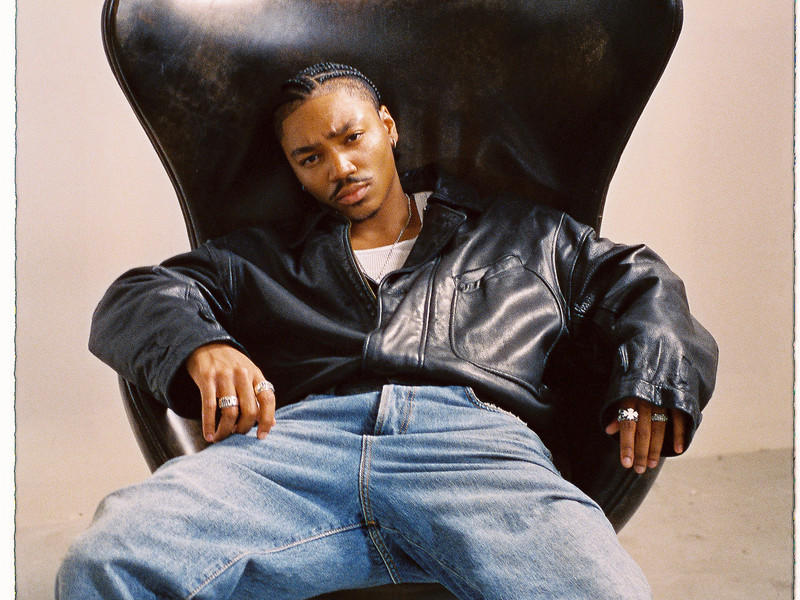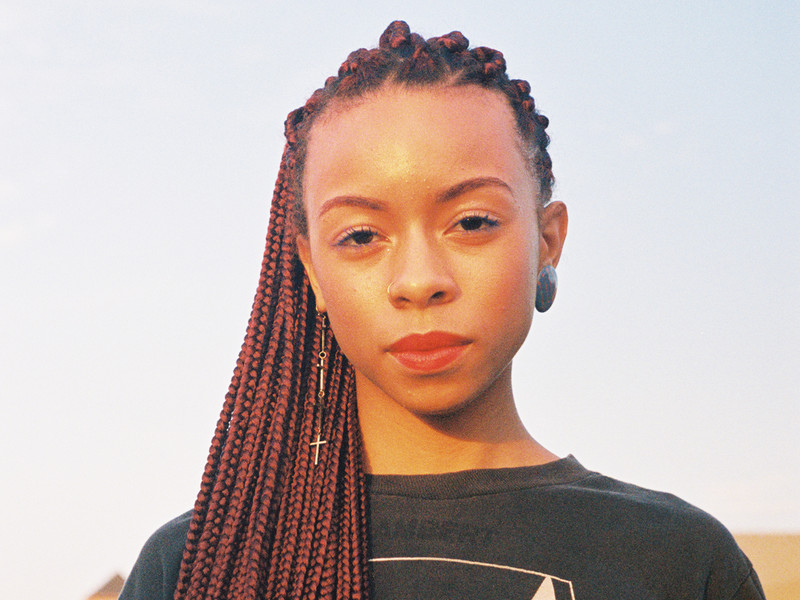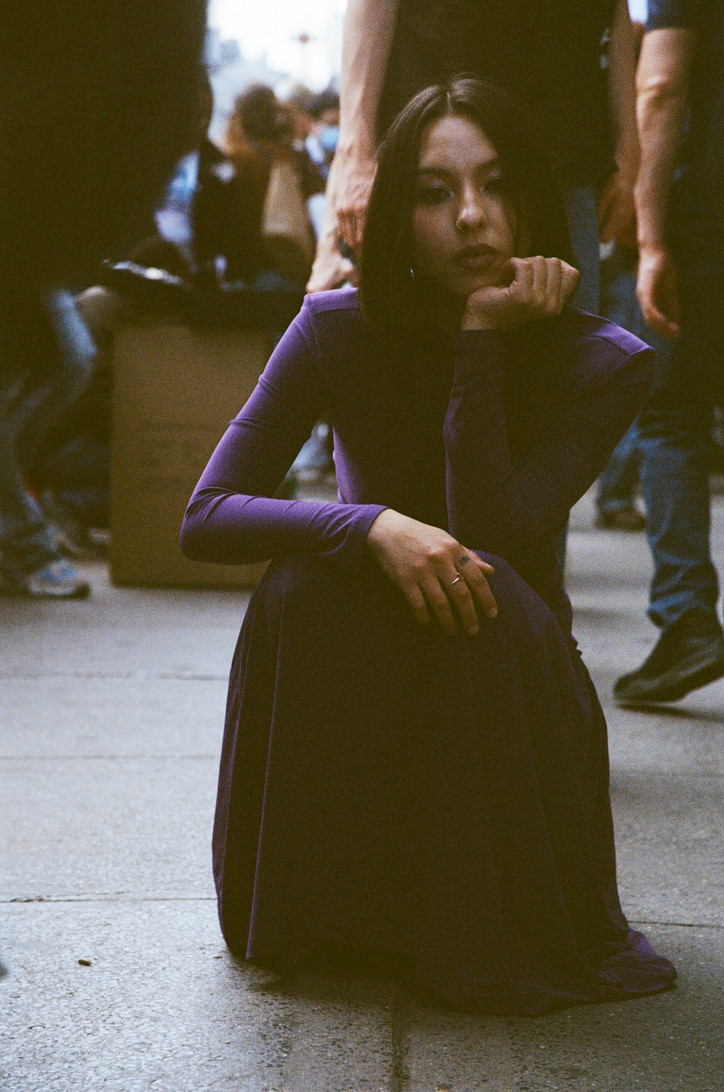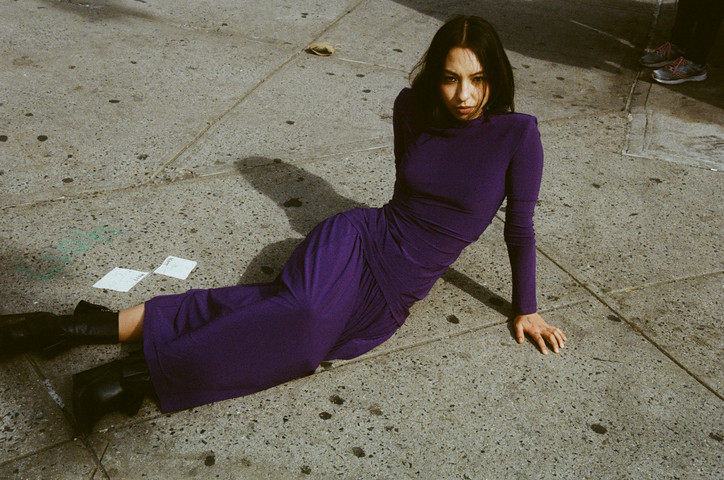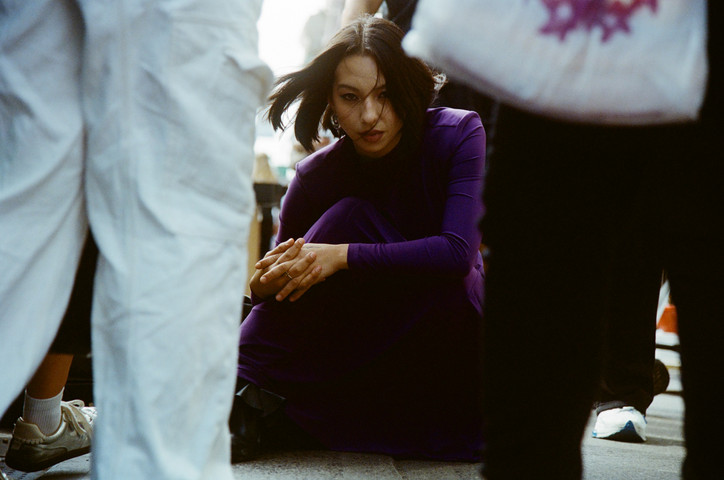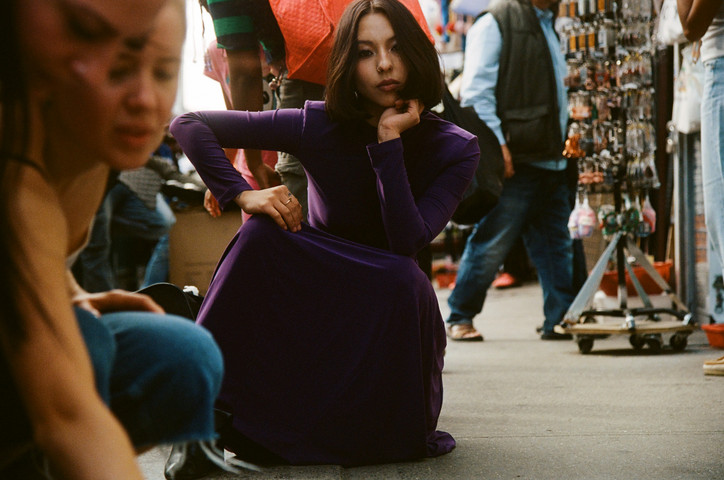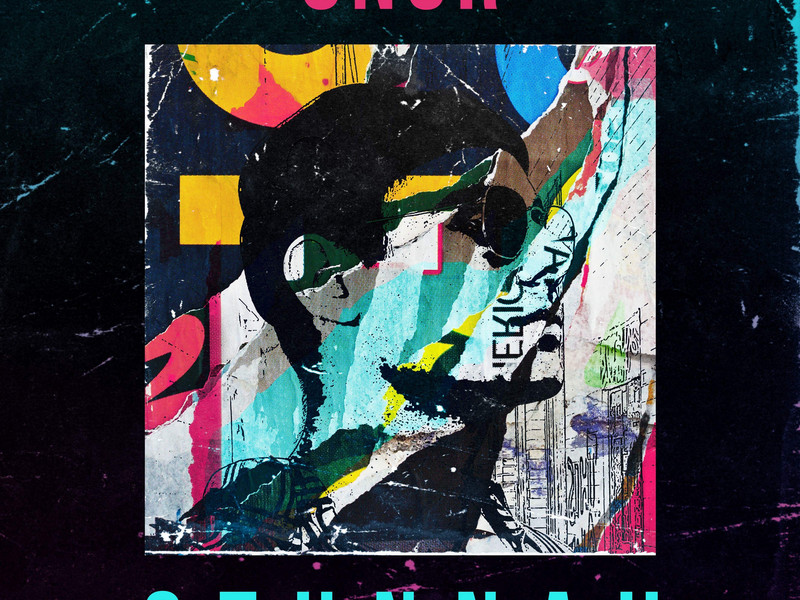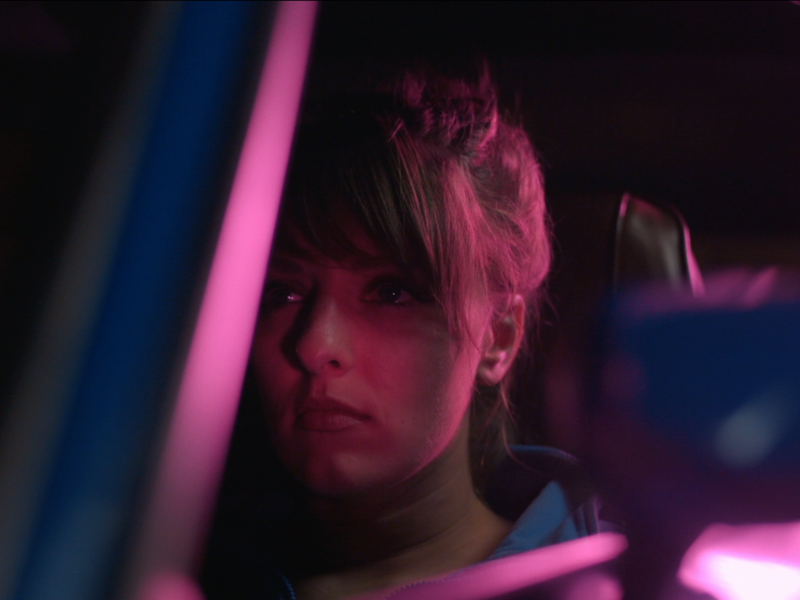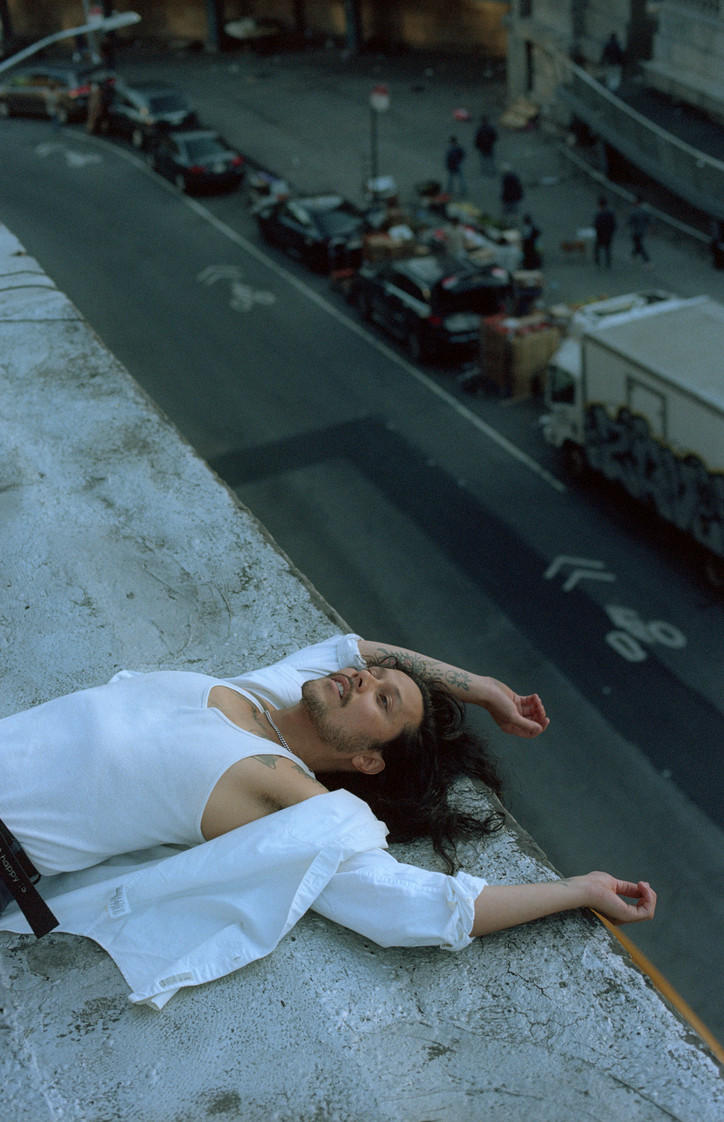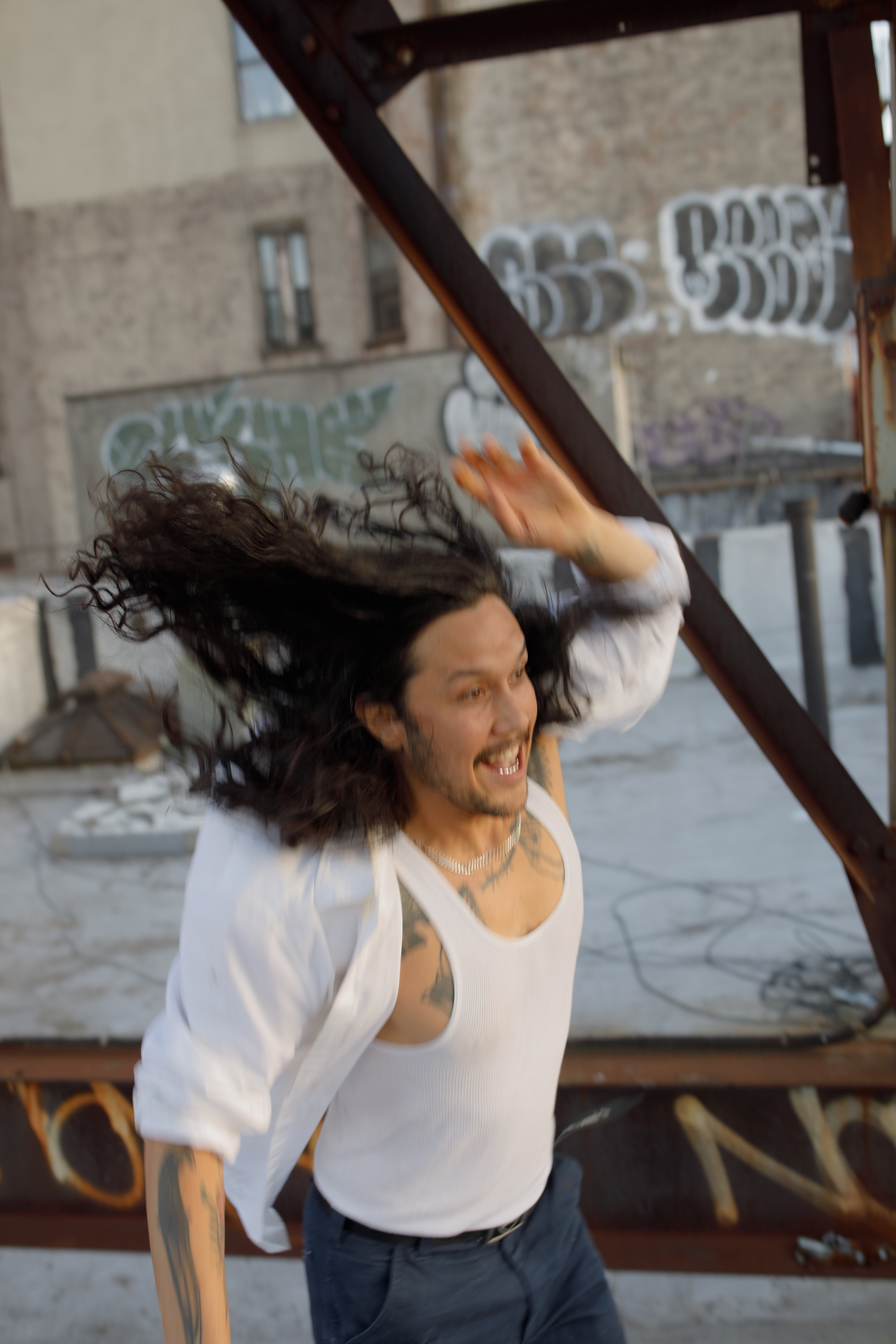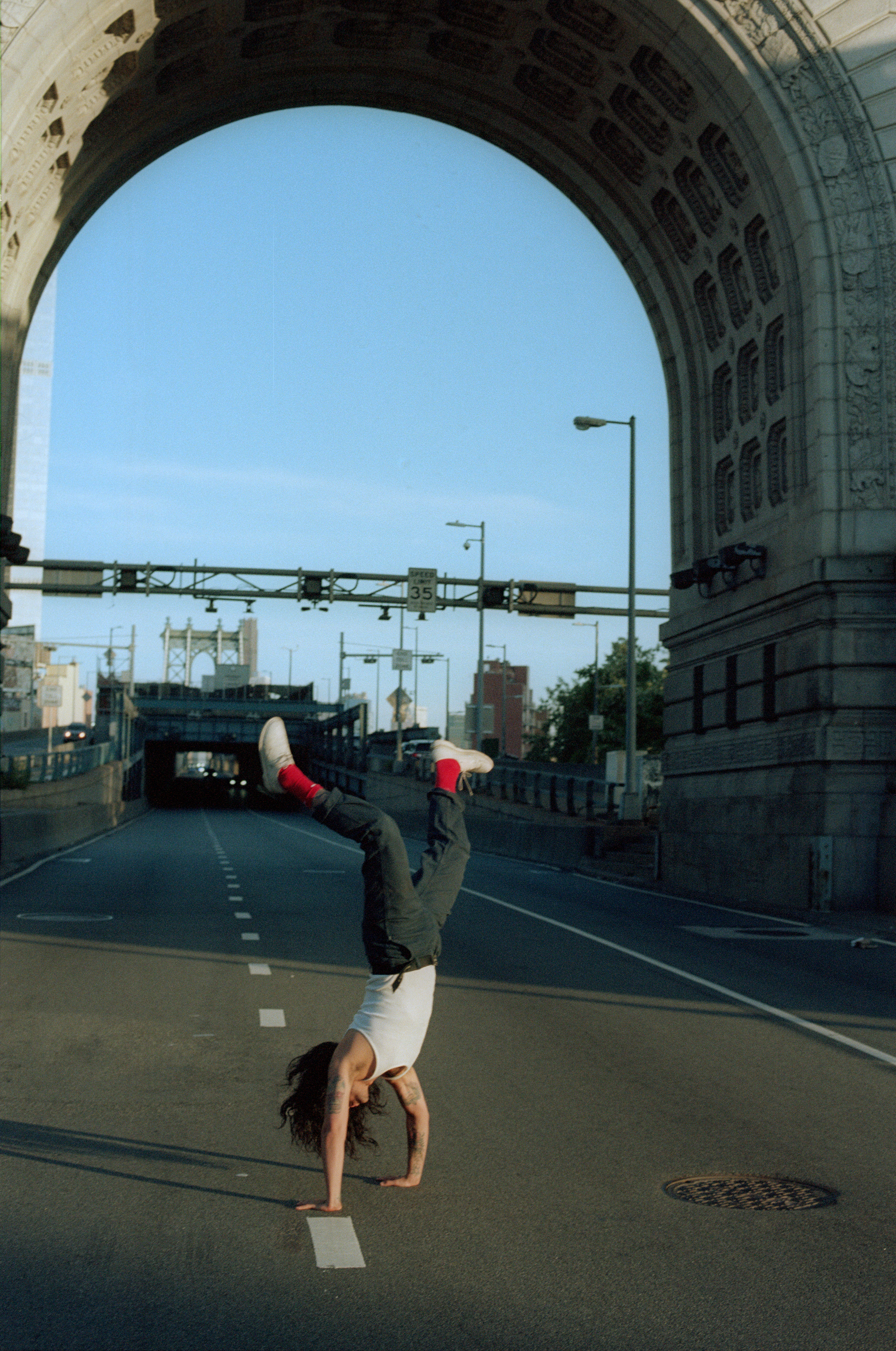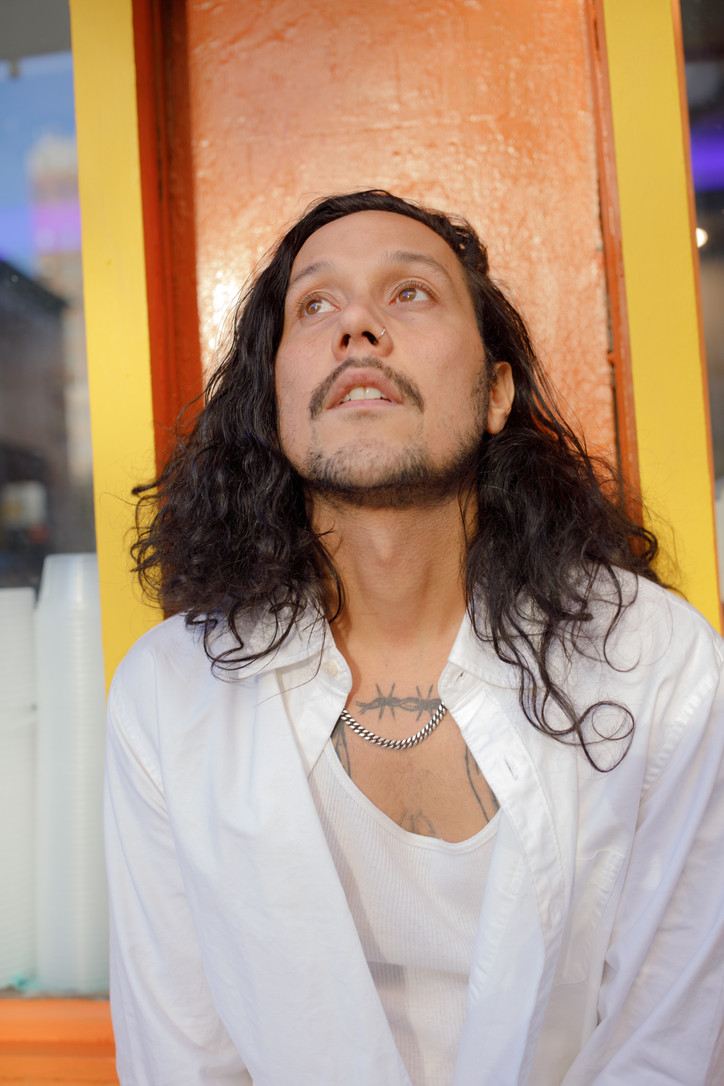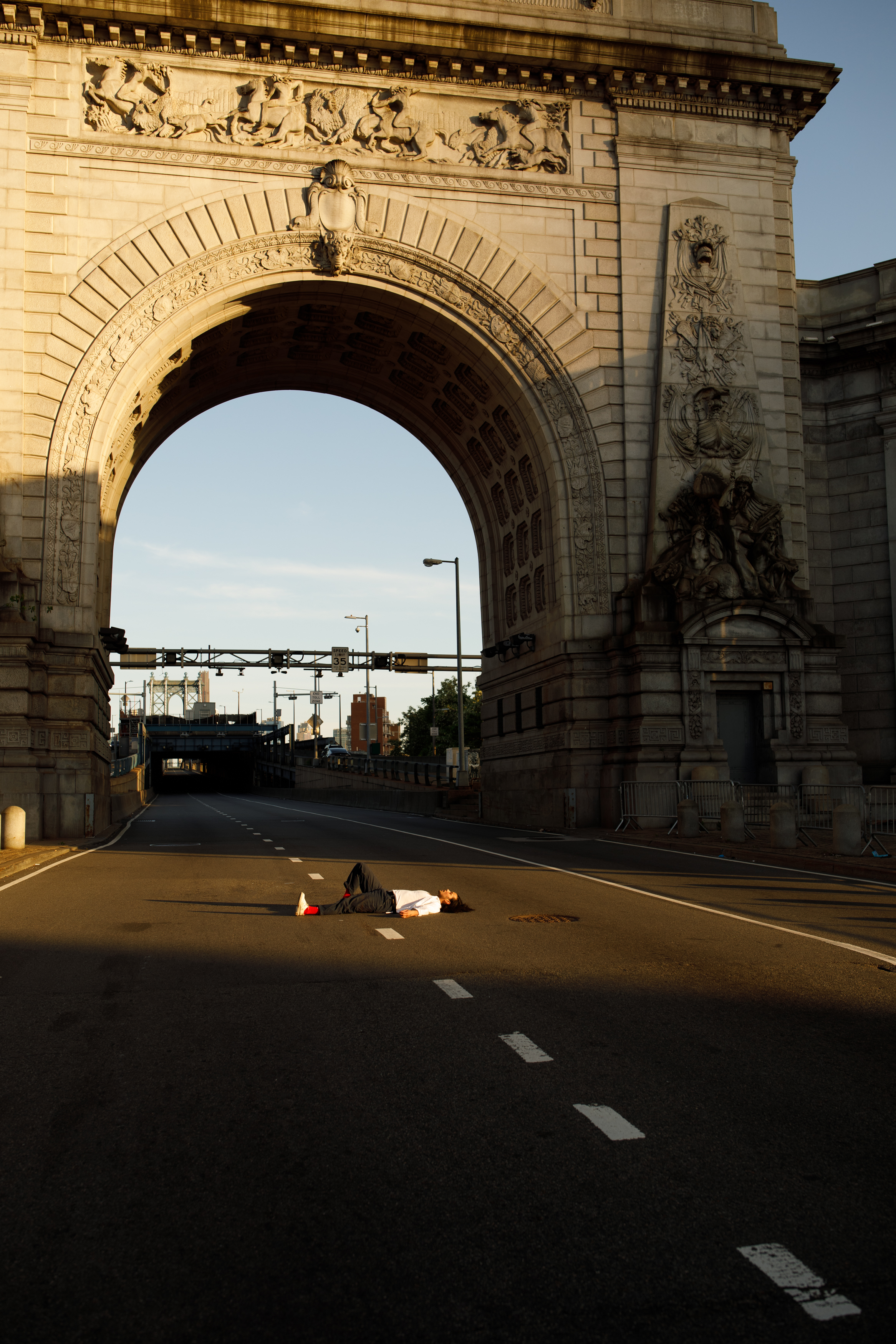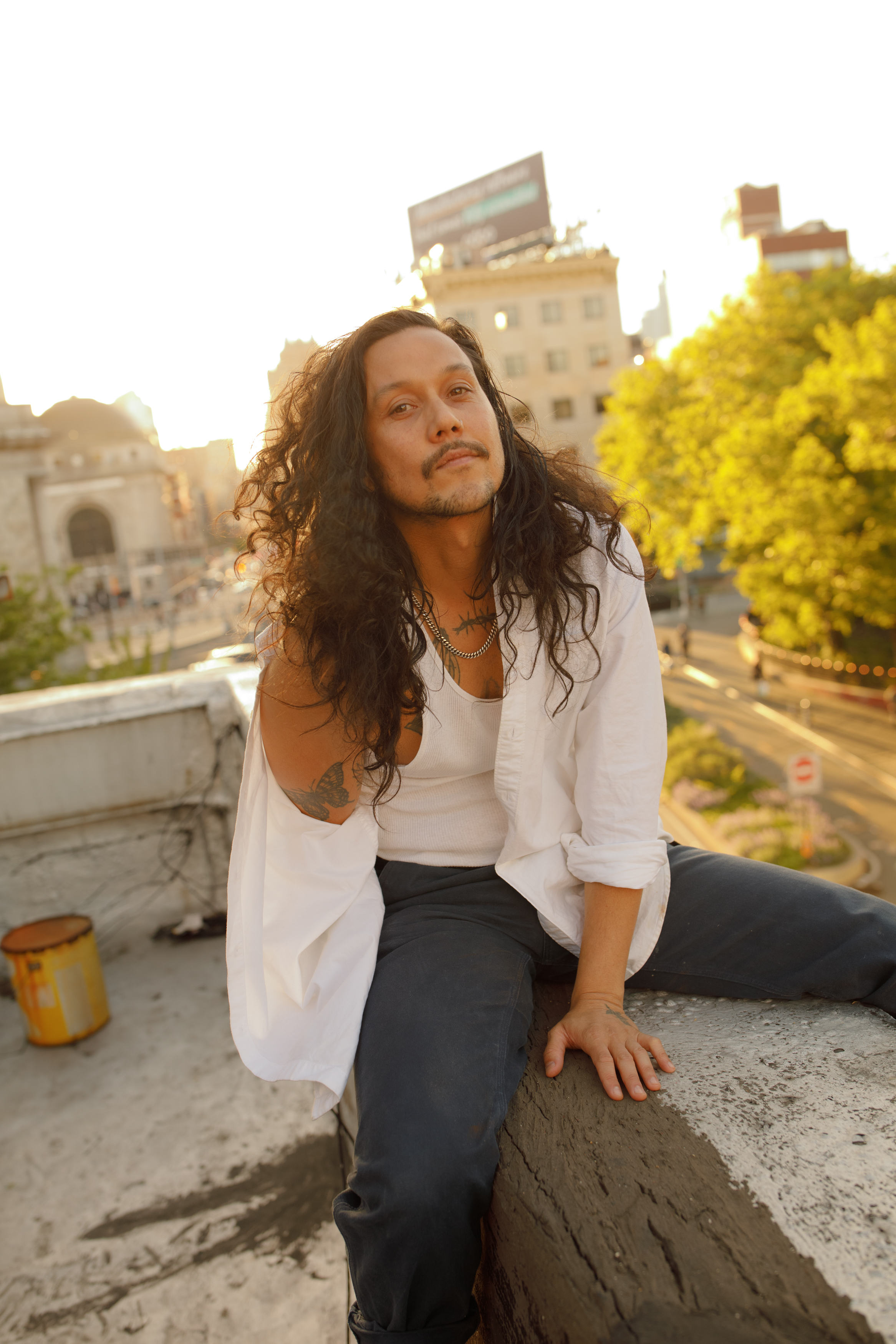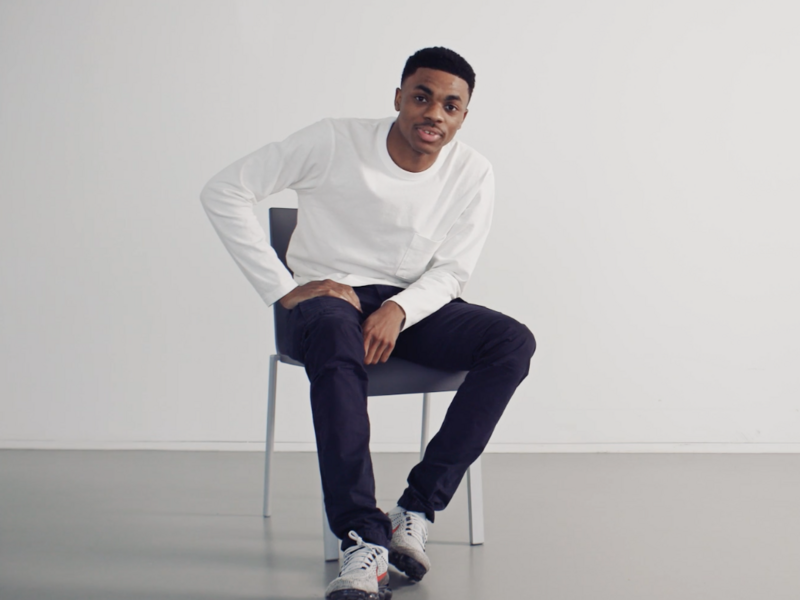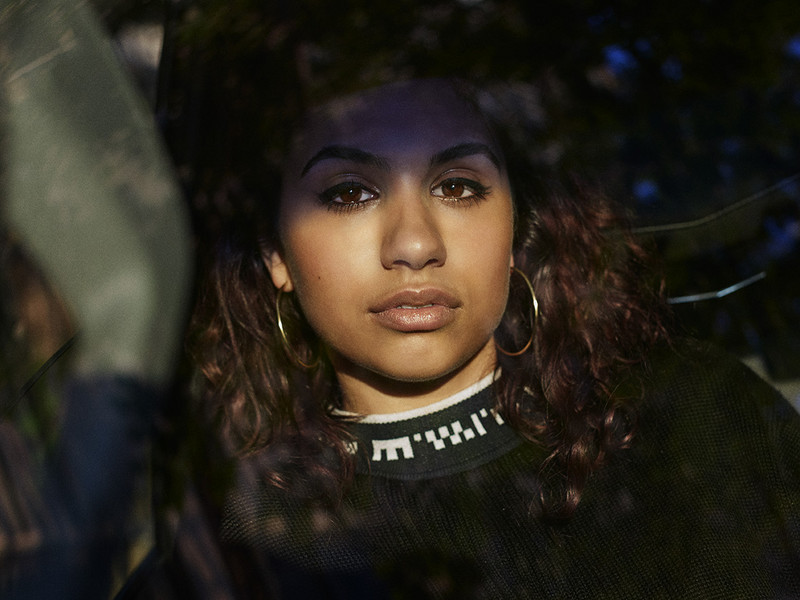On Her Own

But of course, attainment of this caliber by no means happens over night, as the musician humbly notes. From classical training to playing in various bands, including LA scuzz rockers, Cherry Glazerr, and teaching music scoring for films and commercials, you name a musically-involved vocation and SASAMI has been there, done that—and did not forget the lessons that each phase of life taught her along the way.
With the recent release of two new singles, SASAMI is dead-focused on the making of her debut album, set to drop sometime early next year. office had to pleasure of catching up with the musician and picked her brain about her journey, micro pigs and learning to compromise.
I know you just released “Not the Time” and “Callous,” and that was your first solo venture since Cherry Glazerr. So, can you tell me a little about the creative thought that went into these pieces, and the ideas you wanted to communicate to your audience?
Well, “Not the Time” and “Callous” are two pieces that I’ve been working on for the last two years. Since I’ve been off tour, I’ve been working on songs, so they’re not necessarily two of the most recent songs—more like two pieces within an entire record. They were just the two that I was most excited to put out.
You’ve said that “Not the Time” was about those unsent messages—those drafts that you write but never send to the intended person.
It’s funny because I’ve been making music for such a long time—I studied classical music and I’ve been playing in bands for years and years and years—but this the first time that I really had an urgency to write songs with lyrics. So, this record came from a place of needing to do it. I wasn’t like, ‘I’m gonna make a record!’—I was just in Leeds or some random place at the time and just had to write. That’s where it came from.
How has your experience and interdisciplinary musical education informed your creative process or the cultivation of your sound?
I think it’s just inevitable that your education in any area affects you all the time, just because it becomes part of you. In a lot of ways, my musicianship is informed by my rejection of my schooling, my classical training. Being obsessed with My Bloody Valentine and Gang of Four, and angular guitar music, and super noisy guitar music is a rejection of really clean classical music. But I’m sure my arrangements and songs are informed by my knowledge of music theory and voice leading and shit like that.
How do you determine when a song is finished, or when an album is complete?
Songs, when you record them, are really not super different from the demos, and demos are pretty much made in a day or two. This whole record was definitely made on impulse. There are some decisions that were changed in the studio on a couple songs, but I would say for 80 percent of the songs, the demos are really similar to the finished product. I tried really hard to keep everything as stream-of-consciousness as much as possible. And then with a record, after a certain point, I’m ten minutes over how long you can even put on vinyl, so I tell myself I should probably stop.

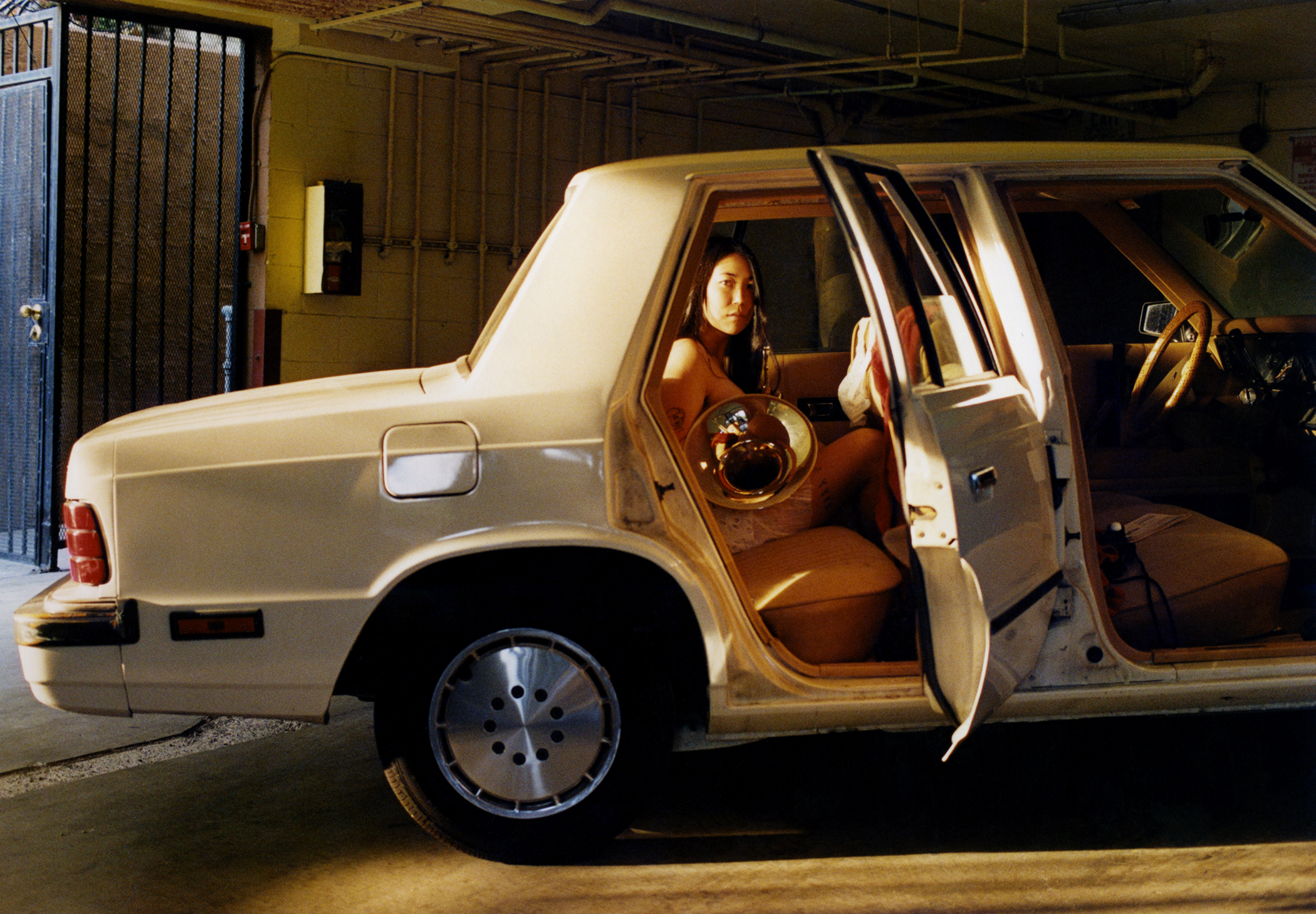
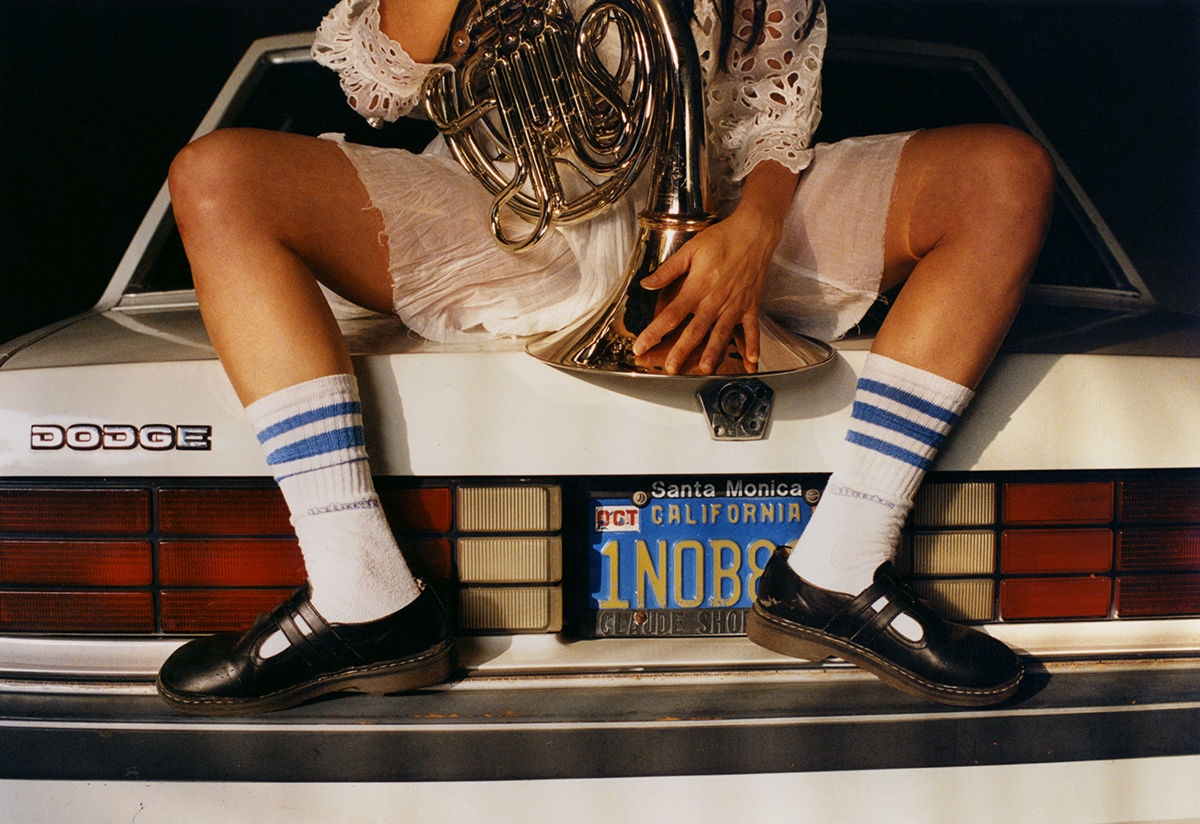
So, the decision is pretty much made for you! What’s your favorite food to eat on the road?
Oh my gosh—favorite food to eat on the road? I love eating Tom Yum—it’s a really spicy Thai lemongrass soup. It’s really good, especially if you have a cold because it makes your fucking sinuses start running—you’ll be all stuffed up and then all of a sudden you’ll be fine. It’s a magical soup—magical.
That’s great, especially because traveling is really good at making people super sick.
I know! Your immune system is low and you probably didn’t sleep the day before because you had anxiety about traveling, and all the germs, and you don’t have your regular routine. So, yeah it happens.
Blossom, Bubbles or Buttercup?
Which is the one that has the raspy voice?
Buttercup, the green one. I thought you were going to say that.
Yeah, probably Buttercup. With my raspy voice, I guess I kind of already relate.
If someone wrote a biography about you, what do you think the title would be?
Sasami Salami!
I like that! You could have gone really serious, really intense with it, but you took the light, fun way out.
Yeah, I feel like I get a lot of my sadness, my anxiety—the more emotionally-wrought kind of stuff—out in my songs. Generally, the rest of the time, I’m a fucking weirdo. When you go to my shows, it’s kind of funny because when I’m playing, I’m serious, but when I’m talking in between songs, I pretty much just rip at how much of a loser I am. There’s definitely a dichotomy between the serious content of my music and the generally light content of my demeanor.
You need a healthy balance. You don’t want to be too much of either, or it’s no fun.
Exactly.
So, I mentioned Cherry Glazerr, and I know you’ve done a bunch of other collaborative work, but it seems like for most of your professional career, you’ve worked in groups, or musical settings that include more than one person. Now that you’re working on your own, what have been the difficulties in distinguishing yourself as a solo artist?
I mean, my issues with it are much less artistic and creative, and more of just realizing that you have to be the boss of your own work—show up and be the boss of my instrument. I have to hire a band, hire a manager, pick a label, pick which tours I want to do and make sure that I’m playing shows with people that I’m aligned with. Just so much non-musical stuff to deal with when, before, I would just roll out of bed and smack some keys, drink some kombucha and then do it all over again. So, it’s kind of different now, but its cool. It’s gratifying, and it’s fun to connect with the audience in a little bit more of a direct way.
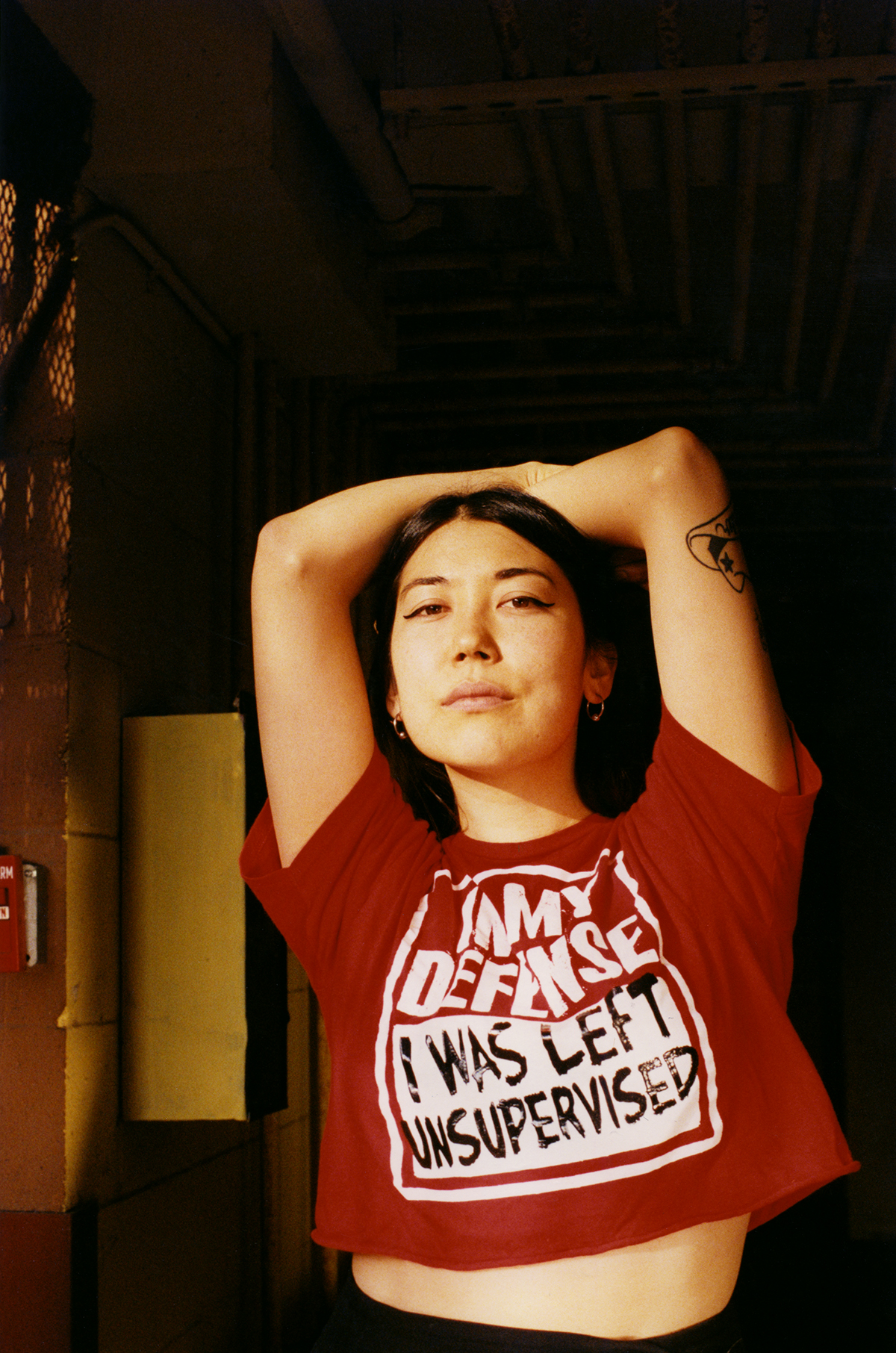
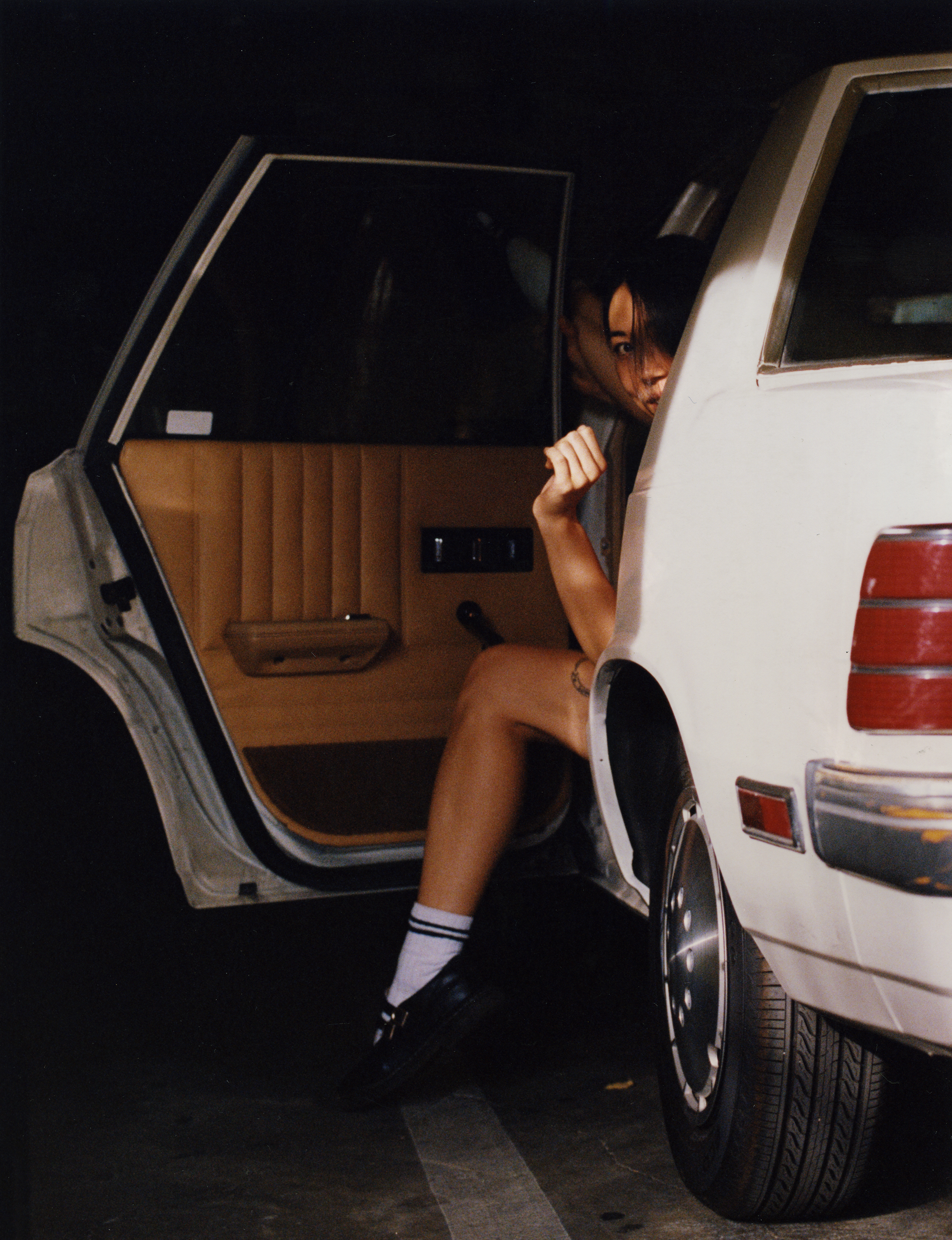
I’ve always felt like I need to be my own boss because I don’t like to listen to people, and I’m a big picture type of girl, so the nitty gritty details always elude me—I don’t think about them, but they’re so important and I often forget that.
Totally, it’s hard. I mean, you’re a writer, so you’re an artist, and I feel like artists are a little more loosey goosey—I know I am. My sister is an occupational therapist and she’s so black and white, she just tells it like it is, you know, like ‘You said you were gonna be here at 11 ‘o'clock, yada yada yada,’ and I’m just like ‘I really just had to do this thing.’ Meanwhile, I’m probably like popping a pimple or something—I’m so floaty, even though I’m Korean. My Korean side is definitely the one that’s like, ‘Finish it, right now!’
What would be your advice for aspiring musicians, or any artists who wants to get started? It’s so scary because if you want your main vocation to be in the creative realm, you either make it or you don’t. So, just any general advice for someone who wants to take that leap?
Yeah, I mean—I’m trying to phrase this in a way that’s not super demystifying of the art world—but I feel like you get to a certain point where your like, ‘I have a job and music is my hobby, and it’s very pure and it’s unaffected by anything other than my creative outlet,’ or you get to the point where you’re like, ‘I don’t want to have another job, I want music to be my whole life,’ but when you hit that point, you kind of have to accept some of the realities of compromise. Not necessarily creative compromises, but you just have to start making decisions in your life that open you up to opportunities that allow you to play music all the time—to put a record out with the right amount of resources. It’s so important to be honest with yourself about what your intentions are in being a musician—if your intentions are just to make pure art. This is also very dependent on your socio-economic situation. Some people are just rich kids, and can just be musicians and don’t have to worry about money, but I’m not like that. I’m the person that paid a hundred grand to go to music school, and am still paying it off, and working through school, was a music teacher, and played in other peoples bands. I had to work. I just started making songs when I was 28, but music has always been a job for me, and I’ve always felt super lucky because I loved my job so much.
Some people have a different relationship to music, but for me and my friends, and colleagues who are successful musicians, I’ve realized that there was just this very clear understanding that this is my job, and I am privileged to have this as my job. There is a lot of work involved, there are a lot of decisions, and a lot of hard realities to be faced, so I think for people who are starting, I would say don’t make it your job right away. Go to school, have some other jobs, let the music proliferate out of a place that is pure, and not money-based. Because at a certain point, when money gets involved, it does affect your musicianship, your plan for what your album is going to sound like, what your music videos are going to look like—it adds this kind of pressure when music becomes your main source of income. So, honestly, if you’re just starting out, don’t be like, ‘I’m gonna do music and my job is to be on tour non-stop and not have another job, and music is my career’—that might burn you really fast. You want to enjoy the process.
I don’t think people talk about that, and it’s such a reality. People get all butthurt like, ‘Why is their music doing well and why isn’t mine?’ and it’s not because your music isn’t good—it’s because probably I’m working harder; or because I saved up a bunch of money from my shitty pizza shop job so that I could take a tour where I wasn’t going to make money, so that I could play to more people, and book another tour. So, I would just say that if your question is about being a musician as your life, don’t start making music when you have career pressure on it—start making music when you have this pure urgency to do it. And practice. In a lot of ways, art comes from urgency, but there is also a skill and a practice to it that you could hone in on. I mean, I was making music for years before I ever wrote a song. I was playing in bands and in an orchestra before I ever felt like I had to make a song.
That’s really beautiful, and something that I also feel is completely overlooked. A lot of things, when you look at them are black and white, but between those two extremes there is so much compromise and grey area.
Totally. In a capitalist society where, in many ways, art only exists when it coalesces with capitalism, it’s a dark reality about art. I just think it’s important to keep that in mind, especially when you’re judging yourself. Don’t judge yourself so hard, like ‘I’m not doing well because my music isn’t good, or my art isn’t good, or my writing isn’t good’—there are so many other factors. I don’t think it means you have to compromise who you are, but there are a lot of small compromises you have to make. I don’t feel like I’m not myself, but I do feel different now that I am a boss of my industry, as opposed to a french horn player who just shows up and toots—it’s a different story.
If you had to liken your music to any animal, what would it be?
A micro pig—smarter than you think, and kind of funny and squealy, but still sly as hell.
'Not The Time / Callous' is out now.
